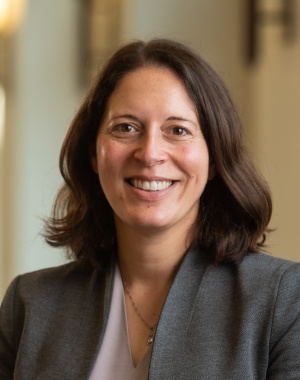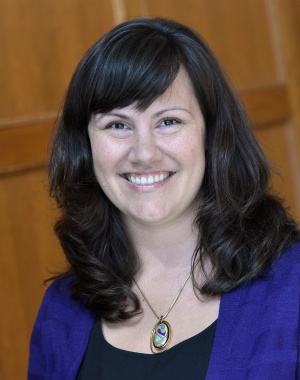
Who’s caring for the kids? The Earned Income Tax Credit and child care arrangements
RSVP by noon on Tuesday, October 25.
Speaker
Katherine Michelmore, Natasha Pilkauskas, Associate Professors of Public PolicyDate & time
Location

Maternal labor force participation has increased drastically over the last several decades, in part driven by an increasing reliance on work-contingent social policies. Yet we know little about how these policies affect children’s child care arrangements, despite ample evidence that care is linked with children’s wellbeing. In this talk, Professors Michelmore and Pilkauskas will discuss their study the effect of one of the largest work-contingent cash transfer programs in the United States – the Earned Income Tax Credit (EITC) – on the child care arrangements of children.
EPI is proud to present a series of education policy talks given by esteemed researchers, policy makers, and / or practitioners.
About the speakers
Katherine Michelmore is an associate professor of public policy at the University of Michigan's Gerald R. Ford School of Public Policy. Previously, she was assistant professor of public administration and international affairs at Syracuse University’s Maxwell School. She was an Institute of Education Sciences (IES) postdoctoral fellow at the Ford School’s Education Policy Initiative from 2014-2016, working with Susan Dynarski and Brian Jacob on issues surrounding inequality in education. Katherine completed her PhD in policy analysis and management at Cornell University. Her dissertation focused on the impacts of the earned income tax credit on education and employment outcomes of children of EITC recipients. She holds a BA in economics and psychology from Wesleyan University. Prior to obtaining her PhD, Katherine was a research assistant at the Urban Institute. Her research interests include family policy, education policy, social demography, and inequality.
Natasha Pilkauskas is an associate professor of public policy at the University of Michigan’s Gerald R. Ford School of Public Policy. Her research considers how demographic, social safety net, and economic shifts in the U.S. affect families and children with low-incomes. A large area of her research focuses on the living arrangements of children – especially those who live in shared and multigenerational households. Much of her research also considers economic insecurity and how social policies, like the Earned Income Tax Credit, might improve the developmental and life trajectories of children living in poverty. Pilkauskas’ research has been published in broad array of top peer-reviewed journals across academic fields including demography, sociology, social work, public health, developmental psychology, and economics. Her research has also been supported by the Russell Sage Foundation, the Institute for Research on Poverty, and the National Academy of Education/Spencer Foundation, among others. Some of Pilkauskas’ current research projects include an evaluation of a cash transfer program, several studies of the Earned Income Tax Credit, and a few projects examining employment quality/low-wage work. Pilkauskas received her BA in sociology and economics from Northwestern University, her Master of Public Policy from Harvard’s Kennedy School of Government, and her MA and PhD in social welfare policy from Columbia University’s School of Social Work.
More information regarding in-person events at the Ford School:
All attendees at public-facing events are strongly encouraged to wear masks during the event, but masking will not be required. Campus guests are expected to complete ResponsiBLUE Guest, prior to the event.
